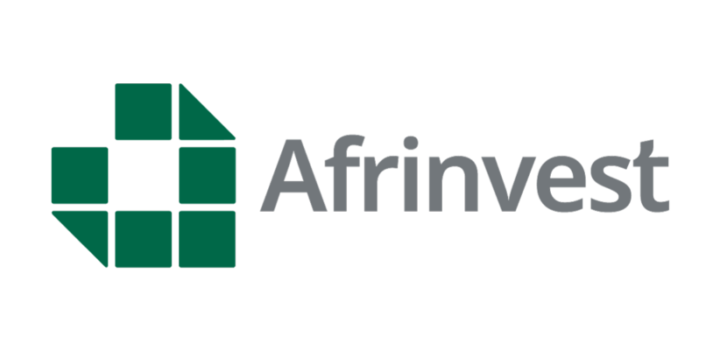Nigeria’s recent monetary tightening has significantly boosted banks’ interest income, with lenders collectively earning about ₦15.4 trillion, according to a report published by Afrinvest. This surge reflects how elevated interest rates and stringent liquidity conditions imposed by the Central Bank of Nigeria (CBN) are reshaping the financial sector—creating winners among banks even as many borrowers struggle under rising costs.
Afrinvest attributes the increase largely to the CBN’s aggressive policy adjustments aimed at curbing inflation and defending the naira. Over the past year, benchmark rates have risen steadily. The Monetary Policy Rate (MPR) has been raised multiple times to discourage excess liquidity and rein in inflation, which has remained persistently high. In turn, the cost of borrowing—both for individuals and businesses—has escalated, while yields on government securities and fixed income instruments have become more attractive for banks.

The ₦15.4 trillion figure represents a marked jump from the same period a year earlier. Banks are benefiting from higher yields on investment securities, particularly government bonds and treasury bills, as well as increased loan rates. Afrinvest’s analysis shows that the mix of income from loans, interbank placements, and fixed-income portfolios, combined with widening spreads, is driving much of the growth. Deposit rates have lagged behind, in many cases, giving banks wider nets between what they charge borrowers and what they pay depositors.
This financial windfall, however, comes with trade-offs. While banks enjoy stronger interest income, many private sector actors are feeling squeezed. Higher borrowing costs are slowing investment, raising the cost of doing business, and weighing heavily on small and medium-sized enterprises (SMEs). Inflation, already elevated, is further aggravated as transportation, logistics, and input costs rise.
Analysts point out that some of the increase is being offset by rising non-performing loans. When interest rates climb sharply, businesses with tight margins often find it harder to service loans. Afrinvest notes that while the banking sector’s bottom line remains strong overall, risk exposure is growing in parts of the loan books—particularly in sectors already under pressure, such as manufacturing, trade, and agriculture.
Another driver of banks’ interest income growth is the shrinkage in the real value of certain fixed-rate liabilities. As inflation and rates rise, some older obligations (including fixed deposits at lower rates) lose attractiveness compared to newer, higher rate instruments. Banks are also increasing their allocations to government securities, which now offer relatively higher and safer returns given the risk environment.
The report highlights that the tightening cycle has shifted asset allocation strategies. Banks are prioritizing placements in risk-free government instruments while exercising more caution in extending credit. This has, in some cases, led to reduced lending to private entities, particularly when credit risk seems elevated or returns insufficient to compensate for risk. For many businesses, especially SMEs, getting reasonably priced credit has become harder, pushing up working capital costs and potentially slowing growth.
From a policy perspective, the current environment reflects the CBN’s trade-off: controlling inflation and defending the exchange rate on one hand, versus supporting private sector growth on the other. The central bank appears to be signaling that short-term economic discomfort is necessary to stabilize longer-term macroeconomic fundamentals. The report suggests that the bank is likely to hold rates at elevated levels until inflation shows credible signs of coming down toward single digits or moderated double-digit levels.
Investors and depositors are watching closely. For investors, higher interest income and widened margins are positive indicators, potentially translating into stronger returns for shareholders. Many banks have built resilience through strong capital buffers, and the cost benefits from higher yields are likely boosting profitability. Deposit holders, however, perceive uneven gains: many feel that their returns are lagging, especially given inflation’s erosive effect on real interest earned.
If the tightening persists, Afrinvest warns of some risks. Inflation expectations could become embedded, especially if supply-side issues—such as high energy costs, logistical bottlenecks, or exchange rate volatility—are not addressed. There is also a danger that credit contraction in the private sector could dampen overall growth, worsen unemployment, and lead to higher defaults. The banking sector, for all its gains in interest income, is not insulated from shocks if borrowers collapse under high financing burdens.
The report also emphasizes that while high interest income is a positive sign for banks, sustainable economic growth depends on complementary reforms. These include stabilizing power supply (so businesses require less generator fuel, which is costly), ensuring stable and predictable foreign exchange policies, improving infrastructure, and removing bottlenecks in transport and logistics that raise input costs. Such reforms would help firms better cope with high borrowing costs, and in turn help prevent runaway inflation and preserve credit quality.
In conclusion, the Afrinvest report paints a complex picture: Nigerian banks are benefiting handsomely under the current regime, seeing record interest income, widened spreads, and improved returns on government securities. But these gains come at the cost of greater pressure on borrowers, higher financial risks, and economic discomfort for many. Whether this phase will result in long-term stability or deeper strain depends on how well the government, regulators, and private sector collaborate to balance tighter monetary policy with structural support for growth.
Support InfoStride News' Credible Journalism: Only credible journalism can guarantee a fair, accountable and transparent society, including democracy and government. It involves a lot of efforts and money. We need your support. Click here to Donate
